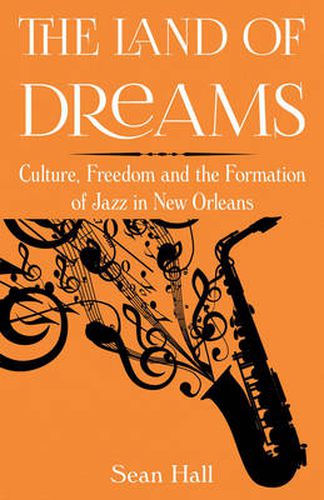Readings Newsletter
Become a Readings Member to make your shopping experience even easier.
Sign in or sign up for free!
You’re not far away from qualifying for FREE standard shipping within Australia
You’ve qualified for FREE standard shipping within Australia
The cart is loading…






Freedom is the oldest human value. Traditionally, though, freedom has been seen in rather abstract terms: as something that, since the Enlightenment in particular, is best couched in the complexities of a political philosophy of the sort associated with Hobbes, Locke, Montesquieu and Rousseau. Yet for freedom to be real it needs to be something that is experienced, felt, and enjoyed, fought for, and maintained in the face of those who might seek to oppose it.
The Land of Dreams explores how the population of New Orleans in the late 19th and early 20th century danced, played, sang and spread their dreams of freedom. By examining sociological and political themes of gender, race, and class it will argue that jazz was instrumental in expressing and giving rise to an outward-looking and socially challenging notion of freedom and liberty in America.
It will maintain that jazz was revolutionary in the way that it was improvised from various cultural materials (both linguistic, material, psychological, social and cultural) that were available in New Orleans during that time.
$9.00 standard shipping within Australia
FREE standard shipping within Australia for orders over $100.00
Express & International shipping calculated at checkout
Freedom is the oldest human value. Traditionally, though, freedom has been seen in rather abstract terms: as something that, since the Enlightenment in particular, is best couched in the complexities of a political philosophy of the sort associated with Hobbes, Locke, Montesquieu and Rousseau. Yet for freedom to be real it needs to be something that is experienced, felt, and enjoyed, fought for, and maintained in the face of those who might seek to oppose it.
The Land of Dreams explores how the population of New Orleans in the late 19th and early 20th century danced, played, sang and spread their dreams of freedom. By examining sociological and political themes of gender, race, and class it will argue that jazz was instrumental in expressing and giving rise to an outward-looking and socially challenging notion of freedom and liberty in America.
It will maintain that jazz was revolutionary in the way that it was improvised from various cultural materials (both linguistic, material, psychological, social and cultural) that were available in New Orleans during that time.